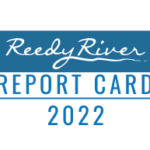FOG is an acronym for Fats, Oils & Grease used in lots of different food dishes. Common FOG items include butter, margarine, oil, lard and shortening. These ingredients are found in many foods, like meats, salad dressings, mayonnaise, pastries, sauces, gravy, dairy products and more.
As these fats, oils, and grease from households and businesses passes through the sewer system, it sticks to the inside of the sewer lines. Over time, this grease builds up and blocks the sewer system causing raw sewage overflows and backups.
In order to alleviate these environmental problems, wastewater agencies must devote considerable resources to removing grease from the sewer lines. These increased operations and maintenance costs ultimately impact customers with higher user fees.
What can you do to help, and avoid overflows?
- Pour FOG into a container, like a coffee can, and allow it to cool and harden.
- Opened soup or vegetable cans, or baby food, pickle and mayo jars, also make good disposable containers.
- Put your FOG container into the freezer to cool even faster.
- When cooled, simply toss your hardened FOG liner or disposal container in the trash.
- Scrape food scraps from dishes and utensils directly into the trash.
- Wipe pots and pans with a dry paper towels to soak up FOG residue before rinsing or washing them.
Learn more at www.pipepatrol.org.






